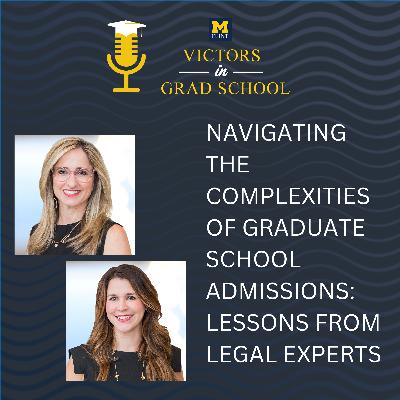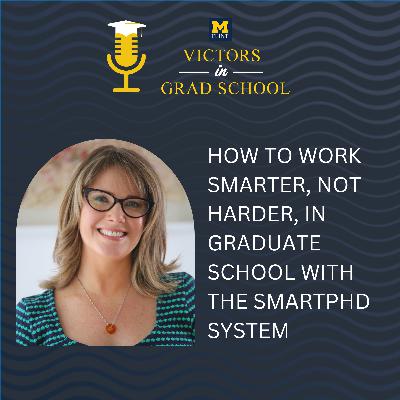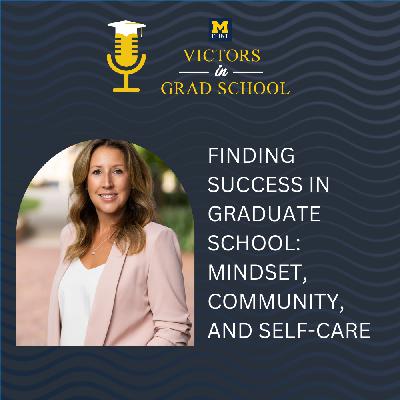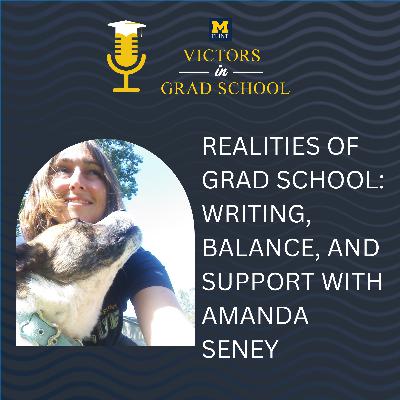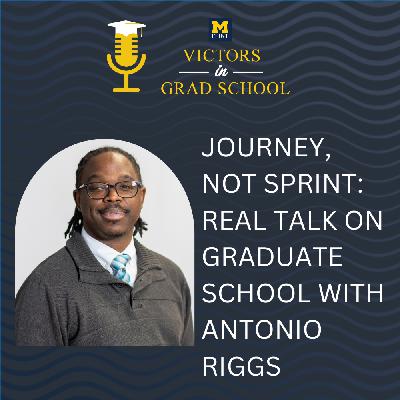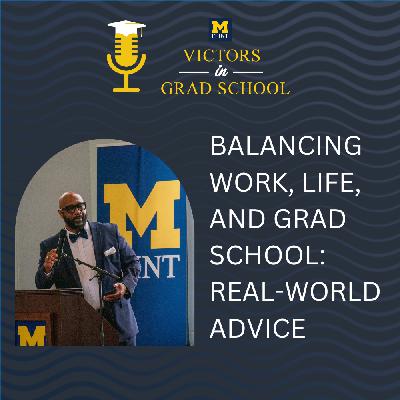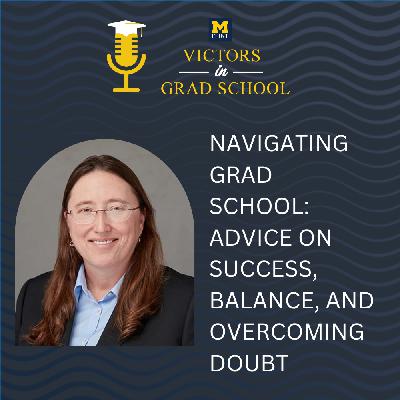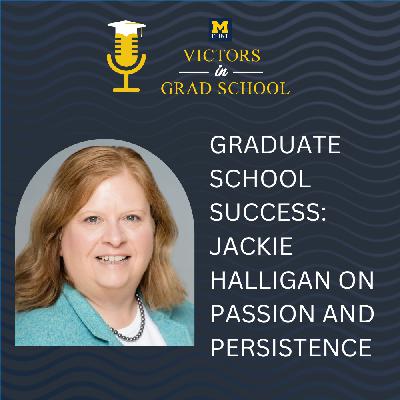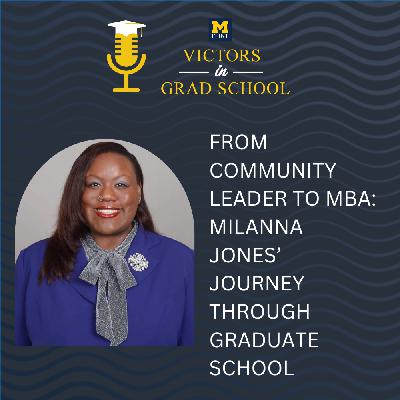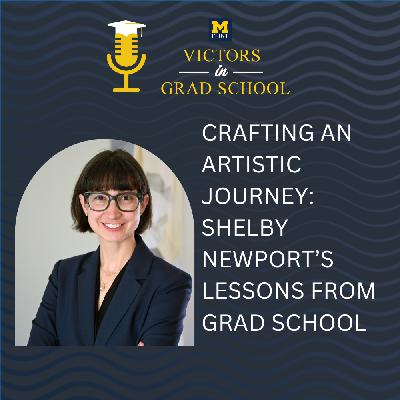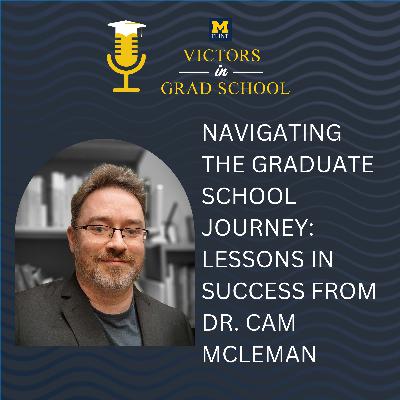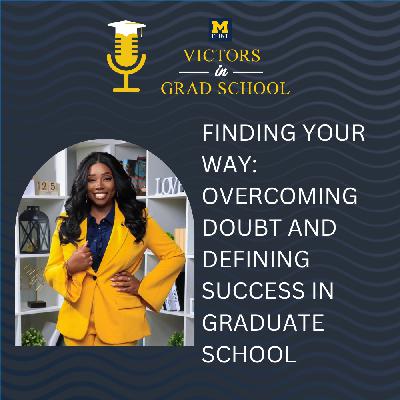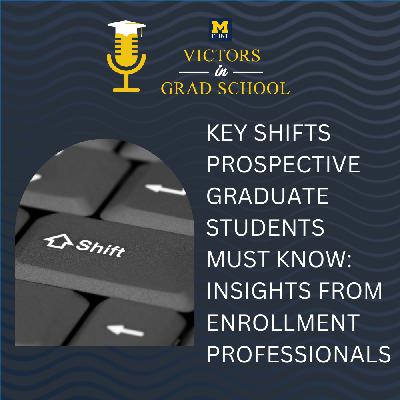Navigating the Complexities of Graduate School Admissions: Lessons from Legal Experts
Description
Are you thinking about graduate school, but worried about a few bumps in your academic or personal past? This week’s episode of "Victors in Grad School," hosted by Dr. Christopher Lewis, is one you can’t afford to miss. Joined by legal experts Susan Stone and Kristina Supler, co-chairs of KJK's Student & Athlete Defense and Title IX Practice Group, the conversation centers around one of the most overlooked—but crucial—aspects of grad school admissions: how to handle disclosures of disciplinary or legal issues, and how to demonstrate personal growth.
Facing the Application Questions Head-On
Many prospective grad students feel anxiety when applications prompt disclosure of past academic or criminal incidents. Susan and Kristina stress the importance of honesty—reading each prompt carefully and responding truthfully, without oversharing. As Susan puts it, "Answer the prompt, but you don’t have to gut yourself." If more information is needed, universities will ask. Ultimately, omitting required information can be far worse than taking ownership of a past mistake.
Lessons in Reflection and Preparedness
The episode delves into the power of self-reflection—not just when answering tough application questions, but also when making decisions about when and why to pursue graduate school. Both Susan and Kristina share insights from their own paths and from those of Susan’s children, who benefited from working and reflecting before diving into advanced studies. That pause, they say, can help students make more thoughtful—and ultimately more successful—academic choices.
Law School, AI, and the Changing Landscape
The advent of AI tools has streamlined research and writing, but Susan and Kristina caution against letting technology replace critical thinking and big-picture analysis, especially for those considering law as a career. Law school, they emphasize, is about so much more than memorization: it’s mental chess, requiring creativity, analysis, and adaptability.
Growth, Redemption, and Moving Forward
Perhaps the most compelling message of the episode is one of hope. A mistake in your past doesn’t define you forever—what matters is how you move forward. Take steps to show growth connected to the issue, stay out of trouble, and be ready to talk authentically about your journey. Colleges and licensing boards are often open to stories of redemption and resilience.
If you’re plotting your path to graduate school—or helping someone who is—this episode is packed with practical advice, honest reflections, and encouraging reminders that your journey, no matter how winding, can still lead to success.
Tune in to hear more insights from Susan Stone and Kristina Supler—and take your grad school journey with confidence!
TRANSCRIPT
Dr. Christopher Lewis [00:00:01 ]:
Welcome to Victor's in Grad School, where we have conversations with students, alumni, and experts about what it takes to find success in graduate school.
Dr. Christopher Lewis [00:00:11 ]:
Welcome back to Victor's in Grad School. I'm your host, doctor Christopher Lewis, director of Graduate Programs at the University of Michigan, Flint. Really excited that you're back with us this week. And every week we are on a journey together. I call it a journey because it truly is. No matter if you're going to business school, law school, med school, doesn't matter, you have made a decision that you want to go to graduate school and no matter where you're gonna be going, it's going to take time, it's gonna take effort, it's gonna take perseverance to get through. And I'm not saying that to scare you away. I'm telling you that because there are things that you can do right now and things that you can do as you go through graduate school to prepare you for that journey that you're going to be on.
Dr. Christopher Lewis [00:00:58 ]:
And that's why this show exists. Every week, I love being able to bring you different people with different experiences that can give you some different resources and some some hints, some tips, some things to put in your own toolbox to help you on that journey. And today, we've got two great guests with us. Susan Stone and Christina Supler are with us, and they are the co chairs of KJK's Student and Athlete Defense Title IX Practice Group. This is a group that's dedicated to support students in crisis and addressing their legal needs. And this is a topic that we haven't really talked about. We haven't talked about as you're going into applying to graduate school, many times on the application, you're going to see questions that'll ask you if you've had any criminal charges that you've had in the past, and you have to disclose those things to be able to be able to apply. And sometimes that scares people.
Dr. Christopher Lewis [00:01:57 ]:
And we'll talk about some of that today. And we'll also talk about Susan and Christina's own journey in going to graduate school themselves. But I'm really excited to have Susan and Christina here. Susan, Christina, thanks so much for being here today.
Susan Stone [00:02:12 ]:
Thanks for having us.
Kristina Supler [00:02:14 ]:
Thank you.
Dr. Christopher Lewis [00:02:15 ]:
Well, I'm really excited to have you here. As I said, we haven't really talked about this topic before. But before we jump into that topic, on the legal side, I love getting to know both of you a little bit more in regards to the journey that you went on because both of you are lawyers and you went through graduate school. And I guess for you, as you were considering and thinking, take me back to that point where you said to yourself, I wanna go to graduate school. What was the reason and what made you to make that decision that you wanted to take that next step?
Kristina Supler [00:02:48 ]:
Well, I am one of those bizarre, peculiar people who, as a child, knew exactly what I wanted to do, and then I actually did it. So your question, Chris, takes me back to my childhood. I think about being a student in fourth grade at Notre Dame Elementary School, and we had a career project. We had to do a report on what do you wanna be when you grow up. And I said, mom, dad, I wanna be a lawyer. And so my mother connected me with a real estate lawyer, which is kind of funny because, of course, I don't do anything in that realm. But did a project, did some interviews, learned more about what it is to be a lawyer. And fast forward, went through undergrad at Boston University where I obtained a degree in European history, highly useful, drawn my degree every day in my life, and then ultimately obtained my law degree from Cleveland Marshall College of Law.
Kristina Supler [00:03:39 ]:
So I love what I do, and I'm happy to be here today to talk about what we do. What about you, Susan?
Susan Stone [00:03:44 ]:
I'm gonna be a lawyer and answer but not answer, Chris, because I am attending my daughter's graduation from Wharton where she's getting her MBA, and I also have a son at MBA school at Cornell. I am reflecting because it's graduation time on the choices they made versus the choice I made and what advice I would give to people. I also have the same story as Christina, so I won't bore you with that. Always wanted to be a lawyer, went straight through. But I see through my two adult children that both of them took time after undergrad and worked and reflected before they went into graduate school, and I really think that was the smarter decision. It is every parent's hope that we raise kids smarter than ourselves, and I achieved that goal because while I love being a lawyer, I love it because I created a niche that worked for me. But if given a couple years to muse and think, maybe I would have considered other options. I was just so strong in the narrative that I should be a lawyer.
Susan Stone [00:04:54 ]:
Whereas I see that my children took more time, worked a little, asked a lot more questions, and took a different path than what they thought. So my daughter, who's getting her MBA in health care consulting, originally wanted to be a doctor. My son, who graduated with a degree in finance, mused for a couple years while he worked, do I want to be a lawyer? Do I want to be a doctor? D

